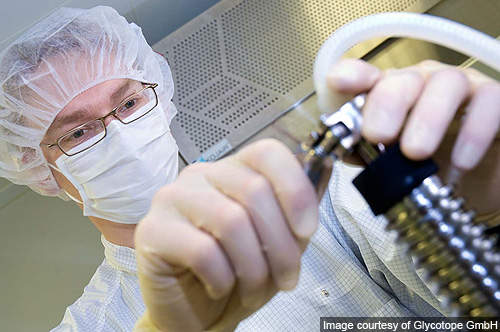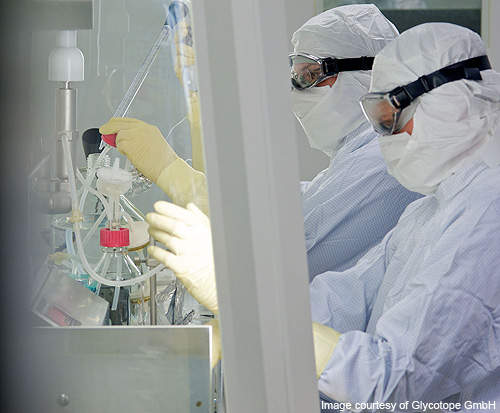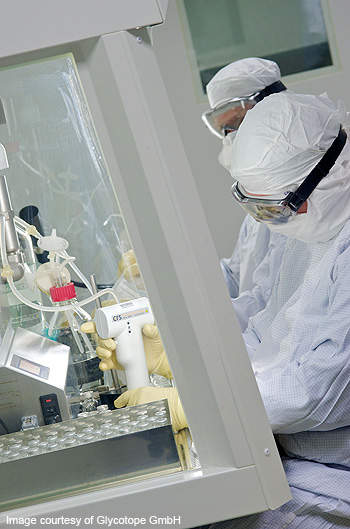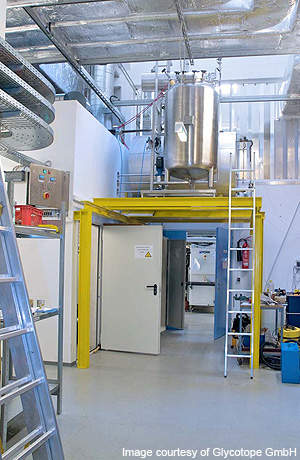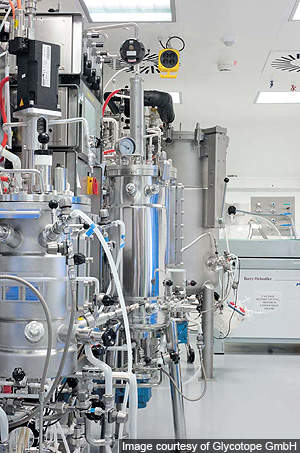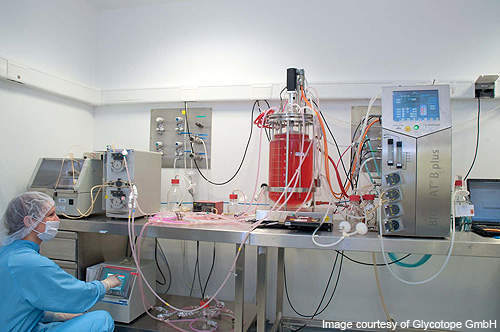Glycotope Biotechnology, a wholly owned subsidiary of Glycotope GmbH, operates an antibody production facility in Heidelberg, Germany. The facility is located within the 6,000m² Czernyring site of the Heidelberg Technology Park, the second largest site of the park.
The facility is close to several life science centres including the University of Heidelberg’s institute for life sciences, the German Cancer Research Centre (DKFZ), the Max-Planck-Institute (MPI) for Medical Research, the Center for Molecular Biology of Heidelberg (ZMBH) and the European Molecular Biology Laboratory (EMBL).
The facility was acquired from Orpegan Pharma in July 2008. Since 2001, the facility has been ISO 9001:2000 certified and inspected by the state authorities. It is additionally approved by the German Gene Technology law (GenTG), the German Protection against Radiation ordinance (StrlSchV) and the corresponding German law for Control of Epidemics (IfSG, BioStoffV).
An expansion to the facility is underway to increase the plant’s capacity. The ongoing expansion marks phase 1 and will increase the plant’s recombinant production capacity to 4kg by mid 2011. During the remaining phases, the plant’s capacity will be further increased to 11kg by the end of 2011. The expansion is expected to leverage the company’s position as a leading provider of recombinant proteins and antibodies in Germany.
Facility
The facility is spread over 3,500m². Approximately 1,500m² of the facility has been dedicated for biotechnology production. The facility houses 300m² of research and development laboratories, 200m² of quality control laboratories, 700m² of warehouses and 200m² of offices.
The biotechnology production area accommodates four independent class D GMP-production suites for fermentation of mammalian cell-lines in fed-batch and perfusion mode. The suites are installed with a number of mammalian cell stirred tank fermentors ranging in capacities from 10l, 100l to two 300l.
Cell retention units have been installed to conduct fermentation in perfusion mode. Cultivation in perfusion mode can be performed up to 7,500l batch size. The clean suites include ISO class 8 hygienic zones that are monitored at regular intervals. The purification suites are classified to ISO 7.
As part of the expansion, new clean rooms are being added to the biotechnology production area. The expansion will add a total of 1,400m² of manufacturing, downstream processing and office space to the facility.
Production
The facility develops therapeutic proteins including antibodies, second generation antibodies and glycoprotein-based biotherapeutics primarily for cancer therapy.
The products, including three that are currently in various stages of clinical development, are manufactured based on the company’s patented GlycoExpress (GEX) technology. The facility also offers semi-automated sterile filling of aseptic solutions. Filling capacity ranges up to 500 vials per batch.
Technology
The facility adopts Glyco-Express technology besides producing recombinant proteins using the cell lines of the customers. Using the Glyco-Express technology, the company’s patented serum free glycol-engineered human cell lines are optimised to result in a positive glycosylation pattern.
The recombinant proteins are produced in cell cultures using several methods including batch, fed batch, repeated batch and perfusion. The complex carbohydrate (sugar) structures are bound to a protein by the cell lines. The manner in which the sugar structures are composed influence the biologic and clinical characteristics of the proteins and vaccines substantially including its activity, serum half-life time and the immunogenic side effects.
During downstream processing, the biopharmaceuticals are recovered and purified. The structural and functional characteristics of the recombinant protein are retained following the removal of all impurities.
The protein is collected from harvest using the appropriate chromatography methods including Ion Exchange Chromatography (IEC), Size-exclusion chromatography (SEC), hydrophobic interaction chromatography (HIC), Reversed-phase chromatography (RP) and Affinity chromatography. The APIs are finally filled in clean suites with level “A in B” standard.

